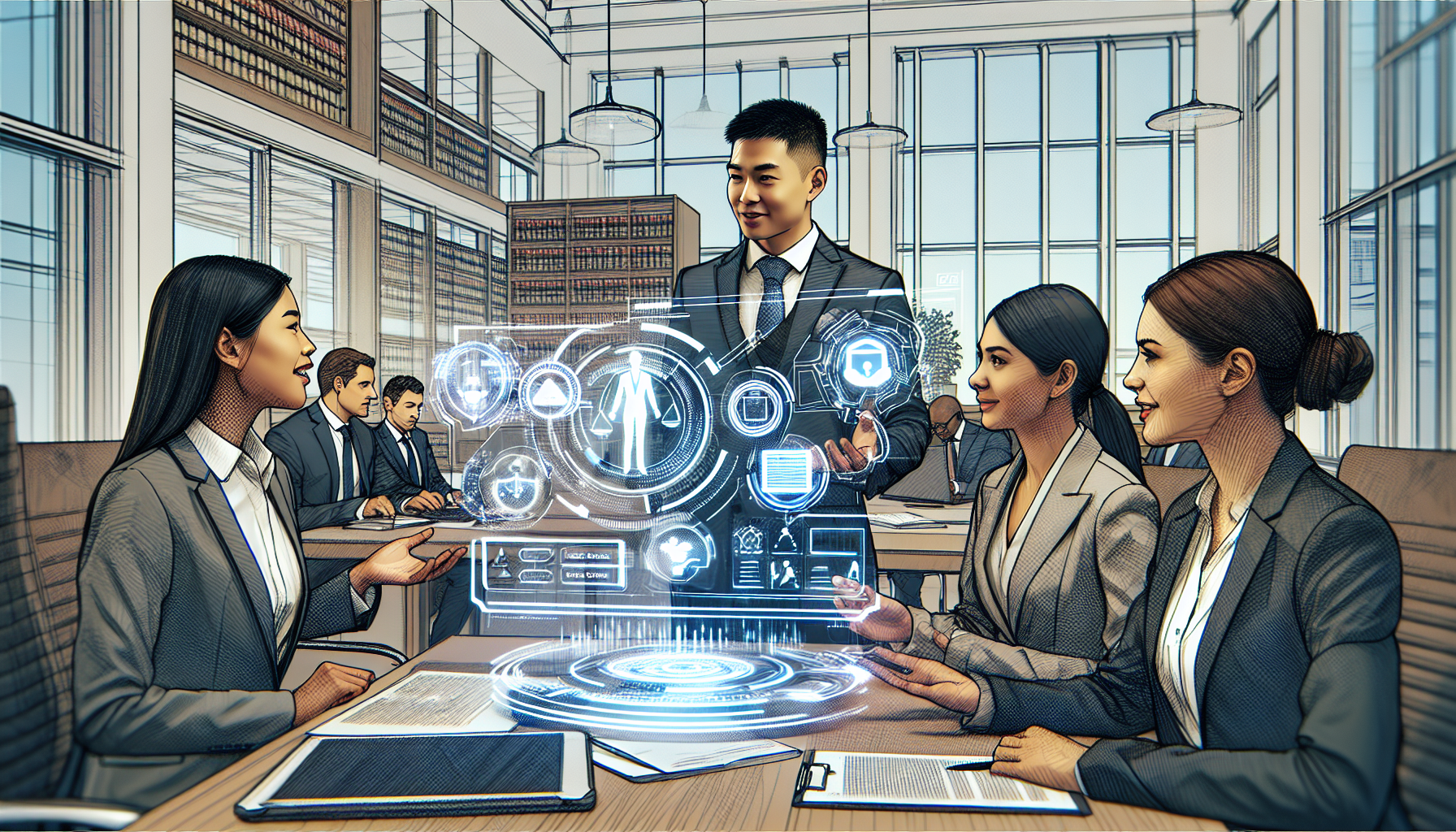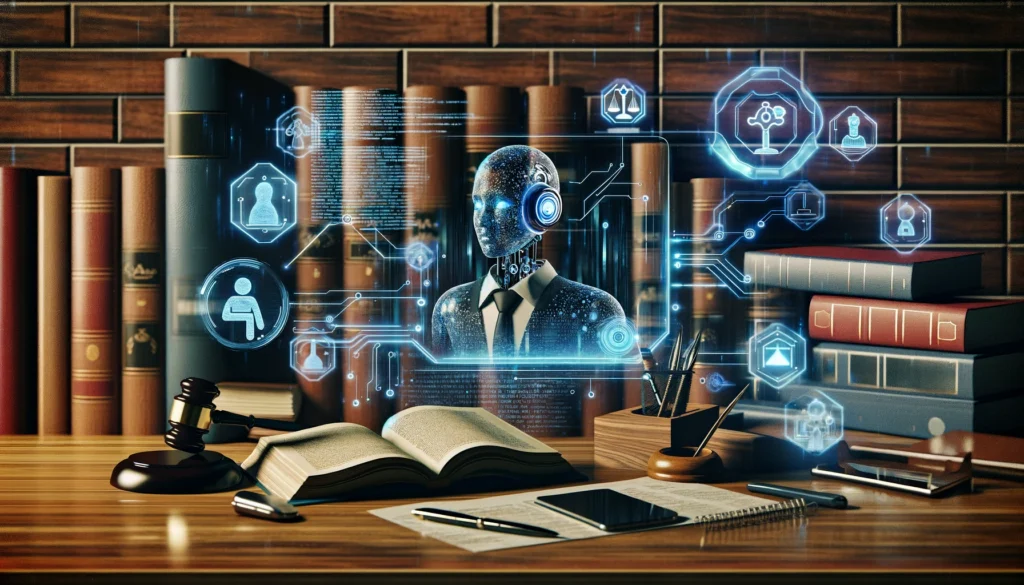
Setting the Stage: Elevating Paralegal Efficiency with ChatGPT
The role of paralegals in law firms is continually evolving, and technological advancements like ChatGPT are redefining how they function. Incorporating artificial intelligence (AI) not only streamlines routine tasks but also empowers paralegals to tackle more complex issues with agility and precision. In an era where efficiency is paramount, harnessing the power of ChatGPT can significantly enhance productivity, reducing the burden of administrative duties and allowing for a deeper focus on substantive legal work.
Navigating the Family Labyrinth: Understanding Complex Dynamics in Estate Planning
Family dynamics in estate planning are often fraught with complexities, demanding meticulous attention from paralegals. Navigating these intricate relationships requires a nuanced understanding of both the legal and emotional landscapes. Estate planning involves:
- Assessing familial relationships and potential points of contention
- Understanding the specific needs and wishes of individuals
- Balancing sentimental value with legal principles
Considering these factors is crucial for crafting effective estate plans that minimize disputes and ensure smooth execution. Leveraging ChatGPT in this realm aids paralegals in understanding and interpreting familial undercurrents, crafting documents, and providing informed insights to attorneys. By easing the navigation through such intricate relationships, AI elevates the quality of outcomes, solidifying the role of paralegals as indispensable assets in estate planning.
Also read:
The Digital Ally: Integrating ChatGPT into Your Workflow
Incorporating ChatGPT into your workflow can seem daunting, but its integration is straightforward and beneficial. Start by:
- Identifying repetitive tasks suitable for automation
- Training your team to use ChatGPT for initial document drafts
- Utilizing AI for research assistance and preliminary legal analysis
These steps ensure ChatGPT becomes a seamless part of your daily operations, augmenting efficiency and accuracy, leaving more time to delve into higher-value work.
Also read:
Crafting Precision Inquiries: The Art of Asking the Right Questions to ChatGPT
Effective communication is key to maximizing ChatGPT’s utility. This starts with crafting precise and contextually rich inquiries. Consider the following techniques:
- Define Clear Objectives: Outline what you need, specifying the context and desired outcome.
- Segment Complex Questions: Break down intricate inquiries into smaller, manageable components.
- Utilize Legal Terminology: Employ specific legal language to guide ChatGPT toward accurate responses.
For instance, instead of asking, “Draft a will,” a well-structured prompt would be:
"Draft a will for a client leaving their primary residence to their eldest child, specific personal belongings to various family members, and the remaining estate split equally among all children. Ensure compliance with the relevant state laws and include typical clauses for executors and revocable trusts."
Fine-tuning your questions not only helps in receiving nuanced and relevant responses but also aligns AI-generated outputs with legal expectations. This skill development is fundamental for maximizing the benefits of ChatGPT.
Also read:
Synthesizing Legalese: Transforming Complex Legal Information into Client-Friendly Communication
Legal jargon can be daunting for clients. Paralegals serve as the bridge, transforming complex concepts into comprehensible communication. ChatGPT can assist in this translation by:
- Summarizing lengthy legal documents into simpler terms
- Drafting client-friendly summaries and explanations
- Generating FAQs based on common client queries
For example, a dense legal clause could be simplified with ChatGPT’s help:
Original: "The executor shall have the authority to settle any claims against the estate, and to take any actions necessary for the efficient administration thereof." Simplified: "The executor can pay off any debts and manage the estate to ensure everything is handled smoothly."
Ensuring that clients grasp vital information not only fosters trust but also eases the legal process, making it less intimidating and more transparent.
Also read:
Drafting with Dexterity: Using ChatGPT for Efficient Document Preparation
Document preparation is a cornerstone of paralegal responsibilities. ChatGPT can streamline this process by:
- Generating initial drafts of wills, trusts, and other legal documents
- Reviewing and suggesting improvements to drafts
- Ensuring consistency and compliance with legal standards
By automating the initial drafting stage, paralegals can focus on refining and personalizing documents, elevating the overall quality and reducing turnaround times.
Also read:
Mediation Assistance: Enhancing Conflict Resolution Strategies
In estate planning, conflicts are common. ChatGPT supports mediation efforts by:
- Offering balanced summaries of both sides’ positions
- Proposing neutral language options to ease tension
- Identifying potential compromise solutions based on legal principles and precedents
Such functionalities equip paralegals with the tools to facilitate effective, amicable resolutions, fostering harmonious outcomes.
Also read:
Ethical Considerations: Ensuring Confidentiality and Compliance with AI
Leveraging AI in legal settings mandates strict adherence to ethical standards. Key considerations include:
- Maintaining client confidentiality by using secure platforms
- Regularly updating protocols to comply with legal and ethical guidelines
- Ongoing education on AI’s ethical use in legal practices
Vigilance in these areas ensures that AI enhances legal practice without compromising professional integrity.
Also read:
Beyond the Basics: Advanced Prompts and Techniques for Nuanced Outputs
To fully harness ChatGPT, mastering advanced prompts is essential. Examples include:
- Contextual Layering: “Draft a trust for a client with assets in multiple states, considering state-specific laws for each jurisdiction.”
- Hypothetical Scenarios: “Explain the implications if a primary beneficiary of a will predeceases the testator.”
- Complex Research Requests: “Summarize recent court rulings on contested probate cases and their impact on estate planning.”
Developing expertise in crafting such detailed prompts ensures that ChatGPT’s contributions are not just accurate but profoundly insightful, thereby adding significant value to the legal process.
Also read:
Wrapping Up with Wisdom: Best Practices for Paralegals Leveraging AI
For optimal integration of AI like ChatGPT, consider these best practices:
- Continual training on AI tools to stay abreast of technological advancements
- Collaborating with IT professionals to maintain robust cybersecurity
- Regularly reviewing and updating AI-assisted processes to ensure alignment with evolving legal standards
Embracing AI with a proactive, ethical approach transforms paralegals into more efficient, insightful, and indispensable members of the legal team.


